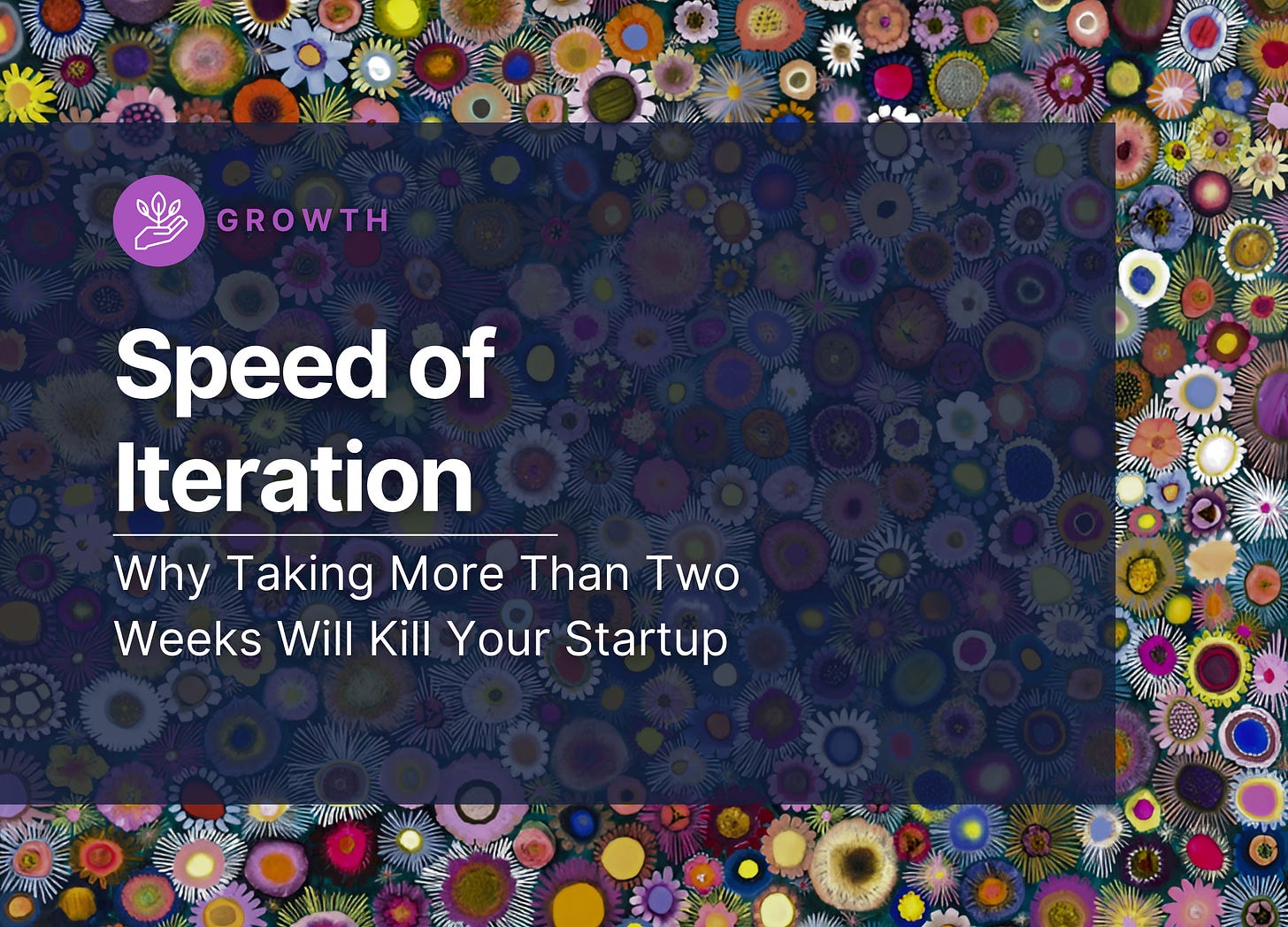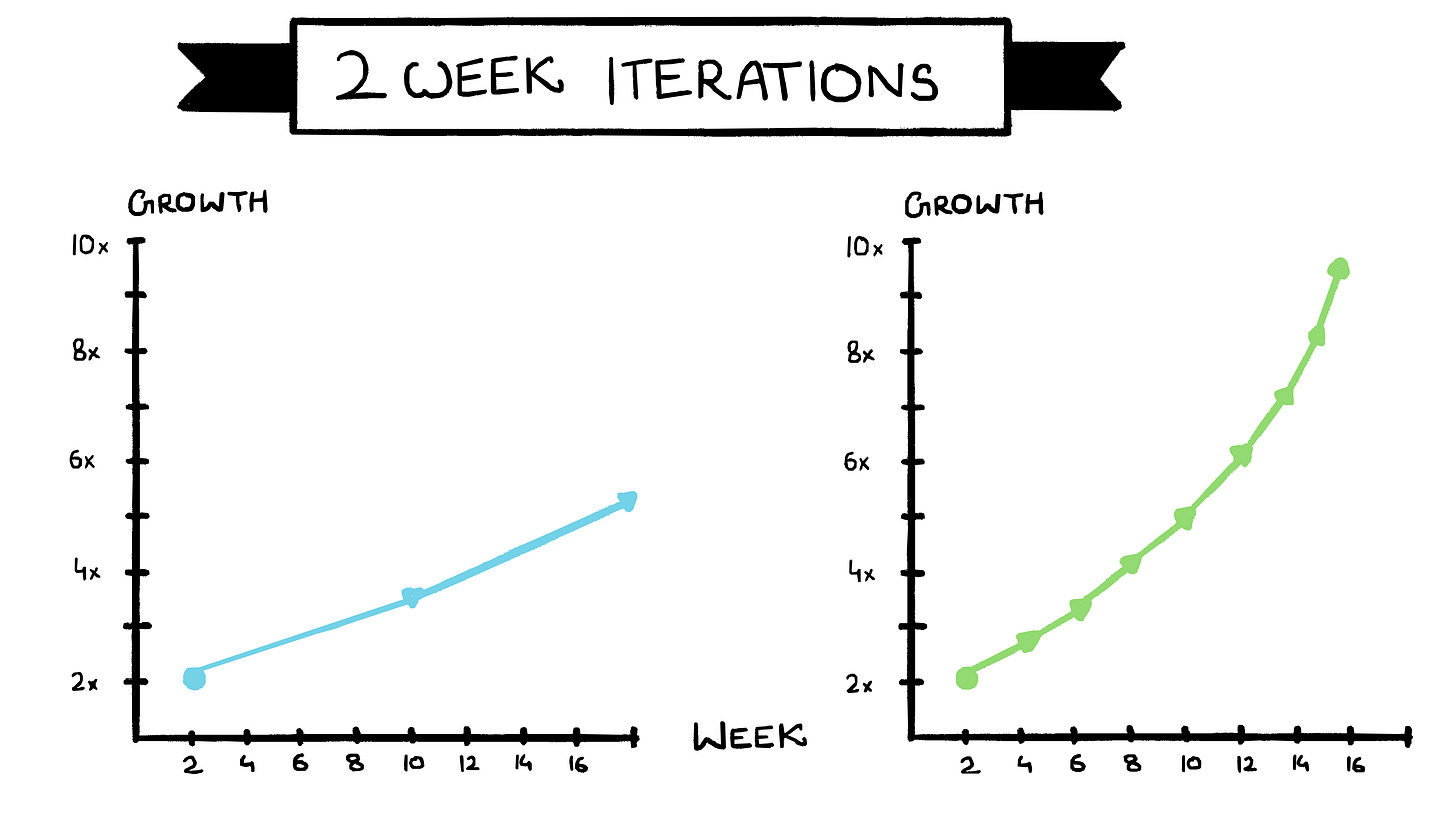Speed of Iteration: Why Taking More Than Two Weeks Will Kill Your Startup
Imagine you’re playing a fast-paced game of archery. Each shot gives you a chance to adjust your stance, aim, or grip and hit closer to the bullseye. Now, picture a startup where each growth experiment takes over a month to complete—you’re throwing one dart every few weeks. Meanwhile, your competitors are hurling darts every single day, learning and refining on the fly. Who do you think will win?
I ran Growth at Weights & Biases, scaling our user base from a few hundred users to millions of users over 5 years. I’ve found that if your iteration cycle is longer than two weeks, your startup is on life support. Here’s why:
The Power of a Two-Week Cycle
Short, focused experiments let you collect feedback quickly. Instead of waiting a month or more for data on whether your sign-up flow works, you’ll know in two weeks (or even one). Over three months, a startup iterating every two weeks can run up to six rounds of tests, while a slower-moving team might only manage two experiments. Multiply those differences over a year, and you’ll see exponentially more progress for the startup that learns faster.
Example from W&B: Early on, when we released content, we tweaked it almost weekly—changing the CTA, shortening the introduction text, or shifting code snippets around—to see what resonated with our audience. Each quick iteration taught us something new and brought in more engaged users.
What to Change Every Two Weeks
It’s not that longer experiments can’t exist. Some growth strategies—like community building—take time to show full results. However, you must change something every two weeks:
Persona, Intent, Channel combos: Once we put out an experiment, each week, we iterated on either the persona the piece targeted, the intended next action (sign up for the product, use a specific feature), or the channel (rework it for social, SEO or a workshop).
Event Formats: Host a paper reading group one week and a deep dive workshop teaching a new topic the next to find your community’s sweet spot.
Integrations: Each week at W&B, we explored a new type of integration to expand our user base. This constant testing revealed which integrations had the biggest impact.
The key is to keep the feedback loop short. Don’t wait for perfect data; gather enough to make a decision, then iterate again.
Why This Matters: Learning Fast
As a startup, you don’t know what will help your grow. Data from quick experiments can surprise you, revealing hidden user preferences. At W&B, we found that some integrations that we assumed would be popular flopped, while unexpected new repos took off. This rapid discovery is only possible if your iteration speed is high.
How to Get Started
Define a Clear Experiment, with a clear metric (2 Weeks Max)
Outline a specific idea and the single metric you care about (e.g., conversion rate, sign-ups, or engagement).Build and Launch
Execute on your experiment immediately. Don’t chase perfection.Measure
Track the success metric obsessively. You should know within two weeks if you’re on the right track. Make sure your success metric can be unambiguously measured.Capture the learning and Iterate
Whether the experiment succeeds or fails, change one meaningful aspect for the next round. Keep learning.
Actionable Takeaways
Timebox Your Experiments: If you find you’re pushing beyond two weeks, scale down your experiment’s scope.
Change at Least One Thing: Even with long-term strategies, keep the two-week feedback loop alive by constantly adjusting some aspect.
Measure One Metric: Don’t overcomplicate. Pick a single KPI that validates your hypothesis.
Document Learnings: Whether good or bad, record everything. Patterns emerge faster than you think.
The Bottom Line: The more experiments you can run—and the faster you run them—the higher your chances of outliving your competition. If you’re serious about growth, don’t let weeks or months go by without a meaningful test. Speed of iteration is what turns guesswork into actionable insight. And in the startup world, the team that learns fastest typically wins.





